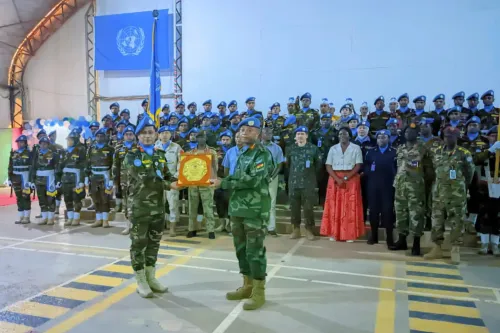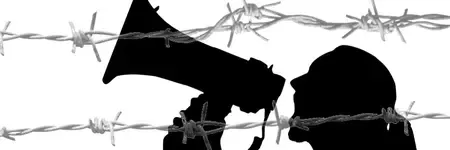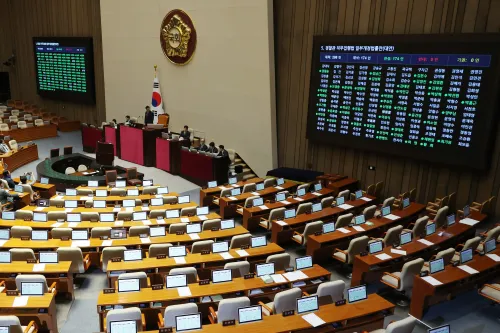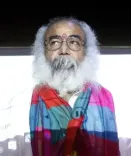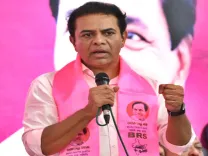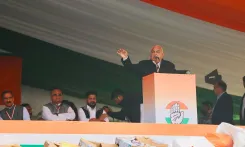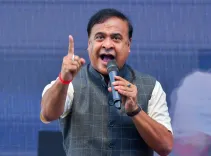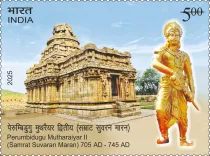Under Pressure, Yunus States Awami League Must Decide on Election Participation
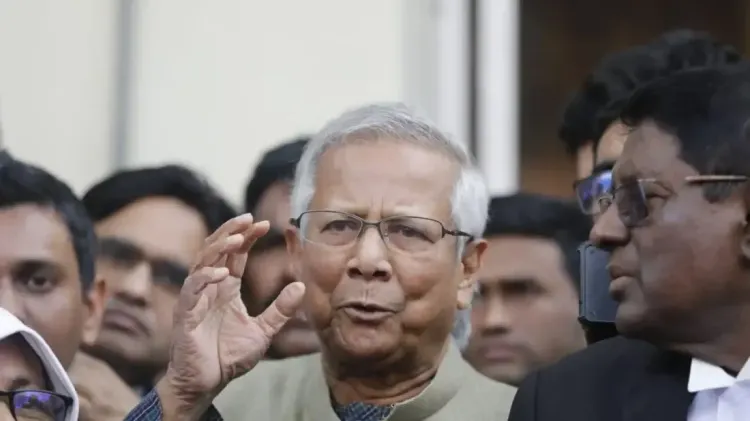
Synopsis
Key Takeaways
- Muhammad Yunus emphasizes Awami League's decision on elections.
- Election Commission plans elections between December 2025 and June 2026.
- Violence against minorities raises concerns about democracy.
- UN warns against banning political parties.
- Yunus's previous remarks on Awami League's role in politics.
Dhaka, March 6 (NationPress) In a notable shift in position, Muhammad Yunus, who is currently at the helm of the interim government in Bangladesh, has declared that the Awami League, the party of former Prime Minister Sheikh Hasina, must determine whether it will engage in the upcoming elections, whenever they may occur.
"They (the Awami League) have to make their choice; I cannot decide for them. The election commission will decide who is eligible to participate in the elections," Yunus reportedly stated in an interview with the British public broadcaster, as cited by local media.
The unceremonious departure of former PM Hasina last August has been viewed internationally as a significant blow to the democratic framework of the nation.
Last month, the Election Commission of Bangladesh announced preparations to conduct national elections sometime between December 2025 and June 2026.
"If reforms can be implemented swiftly, then December would be the timeframe for elections. If a more extended process is necessary, we might require additional months," Yunus explained to the British Broadcasting Service.
The surge of violence in Bangladesh since Yunus assumed leadership, particularly against marginalized groups like Hindus, has not only jeopardized the country’s fragile democracy but has also challenged its aspirations to be a secular state.
The interim administration has faced substantial backlash for allegedly providing refuge to extremist and radical Islamic groups.
However, following US President Donald Trump's return to office in January, the Yunus administration has been cautious regarding democratic and electoral reforms.
In an interview last October with the Financial Times, Yunus remarked that the Awami League has "no place" in the political landscape of Bangladesh.
In February, Mirza Fakhrul Islam Alamgir, Secretary General of the Bangladesh Nationalist Party (BNP), asserted that it is up to the Bangladeshi populace to decide if the Awami League should face a ban in the forthcoming national elections.
The United Nations has also advised the interim Bangladeshi government against prohibiting any political party to ensure a multiparty democracy.
"Avoid political party bans that could hinder the restoration of a true multiparty democracy and disenfranchise a significant portion of the Bangladeshi electorate," stated a fact-finding report by the Office of the United Nations High Commissioner for Human Rights (OHCHR).


